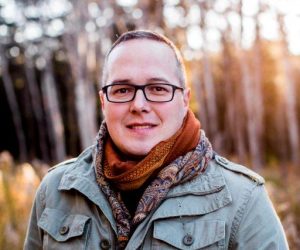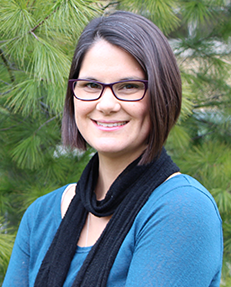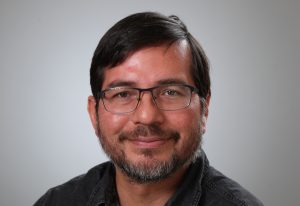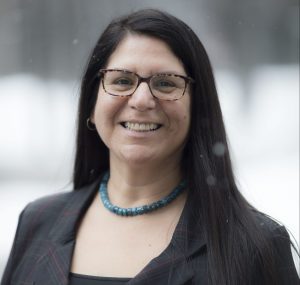Iw Northern Ontario School of Medicine (NOSM) minwendaagwad wii-dibaadodaming onaabamind Yolanda Wanakamik ji-aawid Director of Indigenous Affairs inakamigak Binaakwii-Giizis 5, 2020.
Onjibaa imaa Whitesand First Nation, imaa Anishinaabe-akiing wenji-ateg iw Robinson-Superior Adaandiwin, Yolanda omaamiikwendaanan mino-ayaawin, gikinoo’amaagewin miinawaa izhi-wiijiindiwin oodenaang. Obiidoonan anooji gegoo gikendamowin miinawaa nitaawichigewinan ji-doodaming maajiishkaawin miinawaa mino-bimaadiziwin imaa NOSM miinawaa odayaanan Honours Bachelor of Arts imaa Political Science miinawaa Master of Education imaa Educational Studies. Ozaagitoon apane nandagikenjiged, Yolanda aapji onaadamawaan gakina nendagikendaminid gakina ningoji gikinoo’amaagewigamigong. Daa-gikendaagwad gaa-izhichiged gaa-inanokiid imaa Lakehead University imaa Office of Indigenous Initiaties gaa-inanokiid gii-nandonged, mikwendamowin biinish niigaaniiwin.
Yolanda odayaan gaa-izhichiged gaa-inaakonigeng, inaakonigewin, inaakonigewinan miinawaa gii-aawi gayaagiigidod imaa odishkoniganing. Niibina daso-biboon gaa-daad imaa Giiwedinong Ontario mii wenji-maamiikwendang enakamigadinig giiwedinong miinawaa zanagendamowinan miinawaa minwendamowinan oodenaang. Bijiinag gaa-inanokiid imaa Dilico Anishinabek Family Care gaa-inanokiid Integrated Policy Officer, Yolanda obiidoonan niibina gikenjigewin nandagikendaming miinawaa ganawaabanjigewin besho, provincial miinawaa national inaakonigewinan, izhichigewinan miinawaa waa-izhichigeng ji-doodaming ji-izhi-ayaanid miinawaa ji-mino-izhiwebizinid Anishinaabensan abinoojiinyan, inawendiwinan miinawaa Gichi-aya’aan.
Yolanda bewaachiged naagaaniid aawi aapiji omanaadendaanan debwewinan ji-dazhiikang minik gegoo miinawaa ji-mino-ateg izhi-danakiindiwin nindawaaj ji-mino-doodaming gikinoo’amaagewin wii-izhiwebizing miinawaa onisidotaanan miinawaa odazhiikaanan mashkawendamowinan miinawaa naagadawendamowinan imaa oodenaang ogimaawiwinan.
Dr. Sarita Verna, Dean, President miinawaa CEO imaa NOSM gii-ikido:, “Yolanda gichi-apiitendaagozi omaa endazhi-wiijiindiyaang geget dazhiikamaang wiijiindiwin debwewin miinawaa Anishinaabe mino-ayaawin. Mii sa ayaawid, ge-wiidookang NOSM geyaabi ji-debashkineg gaa-onji-dazhindaming gaa-ikidong imaa Truth miinawaa Reconciliation Commission miinawaa inagakeyi’iin biinjayi’ii Nindinaakonigewininaaning.” – Dr. Sarita Verna, Dean, President miinawaa CEO imaa NOSM.
Iw Northern Ontario School of Medicine omiigwechiwenimigon aw Dr. Joseph LeBlanc, gaa-inanokiid Director of Indigenous Affairs aazhi Binaakwii-Giizis 15, 2018. Dr. LeBlanc gii-onaabamaa ji-aawid Associate Dean gikinoo’amaagewigamigong, Manaadendamowin miinawaa Wiijiindiwin miinawaa oga-wiidookawaan Yolanda’an ji-mino-izhiwebizinid maajii-anokiinid.
NOSM appoints new Director of Indigenous Affairs
The Northern Ontario School of Medicine (NOSM) is pleased to announce the appointment of Yolanda Wanakamik as the Director of Indigenous Affairs effective October 5, 2020.
A member of Whitesand First Nation, located in the traditional territory of the Robinson Superior Treaty, Yolanda is passionate about health, education and community. She brings a vast array of knowledge and skills that will support growth and a positive organizational culture to NOSM and holds an Honours Bachelor of Arts in Political Science and a Master of Education in Educational Studies. A committed lifelong learner, Yolanda has dedicated herself to the advancement of learners at all levels of the education. Notably she held several positions at Lakehead University in the Office of Indigenous Initiatives from recruitment, retention to senior leadership.
Yolanda has a diverse background in areas of governance, policy, politics and served as her First Nation Band Councillor. The many years spent in Northern Ontario have laid the foundation for a profound interest in the north and the challenges and rewards faced by communities. In her most recent position at Dilico Anishinabek Family Care as the Integrated Policy Officer, Yolanda brings a wealth of knowledge of research and analysis of local, provincial and national policies, programs and initiatives affecting the health and wellbeing of Indigenous children, families and Elders.
Yolanda is a visionary leader committed to principles of supporting capacity and community development as keys to improving education outcomes and recognizes and supports the strengths and aspirations of community stakeholders.
Dr. Sarita Verma, Dean, President and CEO of NOSM stated:. “Yolanda is an incredible asset to our team which is committed to social accountability and Indigenous health. In her role, she will help NOSM continue to meet the recommendations of the Truth and Reconciliation Commission and other major directions in our new Strategic Plan.”
The Northern Ontario School of Medicine would also like to thank Dr. Joseph LeBlanc, who held the position of Director of Indigenous Affairs since October 15, 2018. Dr. LeBlanc was appointed the School’s inaugural Associate Dean, Equity and Inclusion and will work with Yolanda to ensure a smooth transition.






